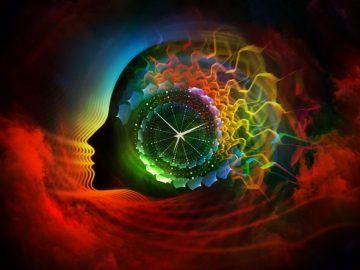Scott Barry Kaufman in Scientific American:
 When it comes to intelligence, we all have bad days. Heck, we even have many bad moments, such as when we forget our car keys, forget a friend’s name, or bomb an important test that we’ve taken a day after staying up all night worrying about it. Truth is, none of us– including the world’s smartest human– is perfectly consistent in our cognitive functioning. Sometimes we are at our very best and feel like our brain is on fire, and at other times, we don’t even recognize ourselves. All of this sounds so obvious, but surprisingly the field of human intelligence has not had much to say on the topic. For over the past 120 years, the field has shed far more light on how we differ from each other in our patterns of cognitive functioning than how we each differ within ourselves over time.
When it comes to intelligence, we all have bad days. Heck, we even have many bad moments, such as when we forget our car keys, forget a friend’s name, or bomb an important test that we’ve taken a day after staying up all night worrying about it. Truth is, none of us– including the world’s smartest human– is perfectly consistent in our cognitive functioning. Sometimes we are at our very best and feel like our brain is on fire, and at other times, we don’t even recognize ourselves. All of this sounds so obvious, but surprisingly the field of human intelligence has not had much to say on the topic. For over the past 120 years, the field has shed far more light on how we differ from each other in our patterns of cognitive functioning than how we each differ within ourselves over time.
This is curious considering that a person-centered approach has proved fruitful in other fields, such as medicine and neuroscience. Even within the study of human behavior there has been progress, from looking at how individual emotions fluctuate over time, to how individual personalitytraits such as introversion and openness to new experiences and even our morality fluctuates throughout the course of the day. It has become increasingly clear that the results from the traditional individual differences paradigm– where we compare people to each other– often does not apply at the person-specific level.
In only the past few years, intelligence researchers have been able to demonstrate that this is also true in the domain of human intelligence. For the past 120 years, the field just hasn’t had the tools to view intelligence at such a level of granularity. With the adoption of newer technologies, however, researchers have begun to view an individual’s intelligence at a more microscopic level, able to capture all sorts of fascinating variations– across days, within days, and even moment-to-moment. It turns out that intelligence is changing all over the place all the time. Who knew?
More here.
